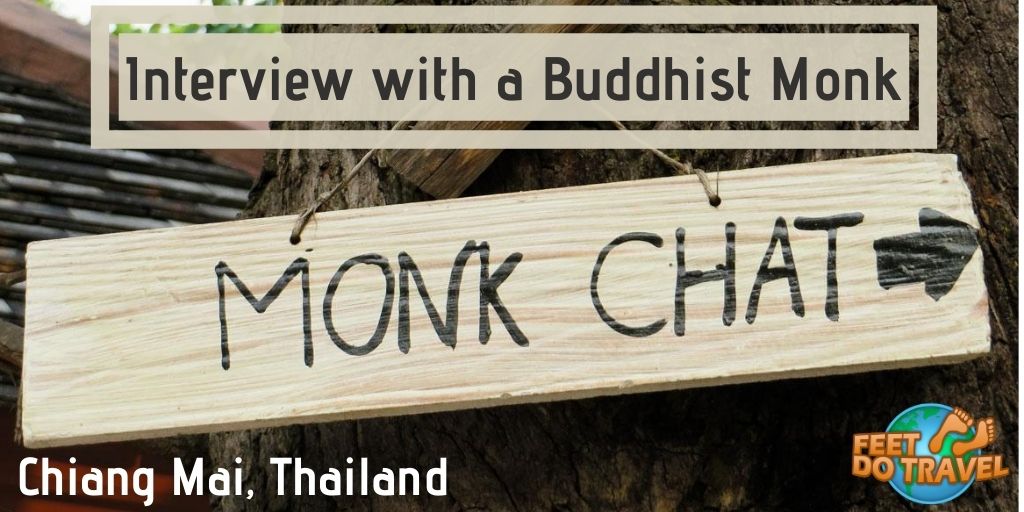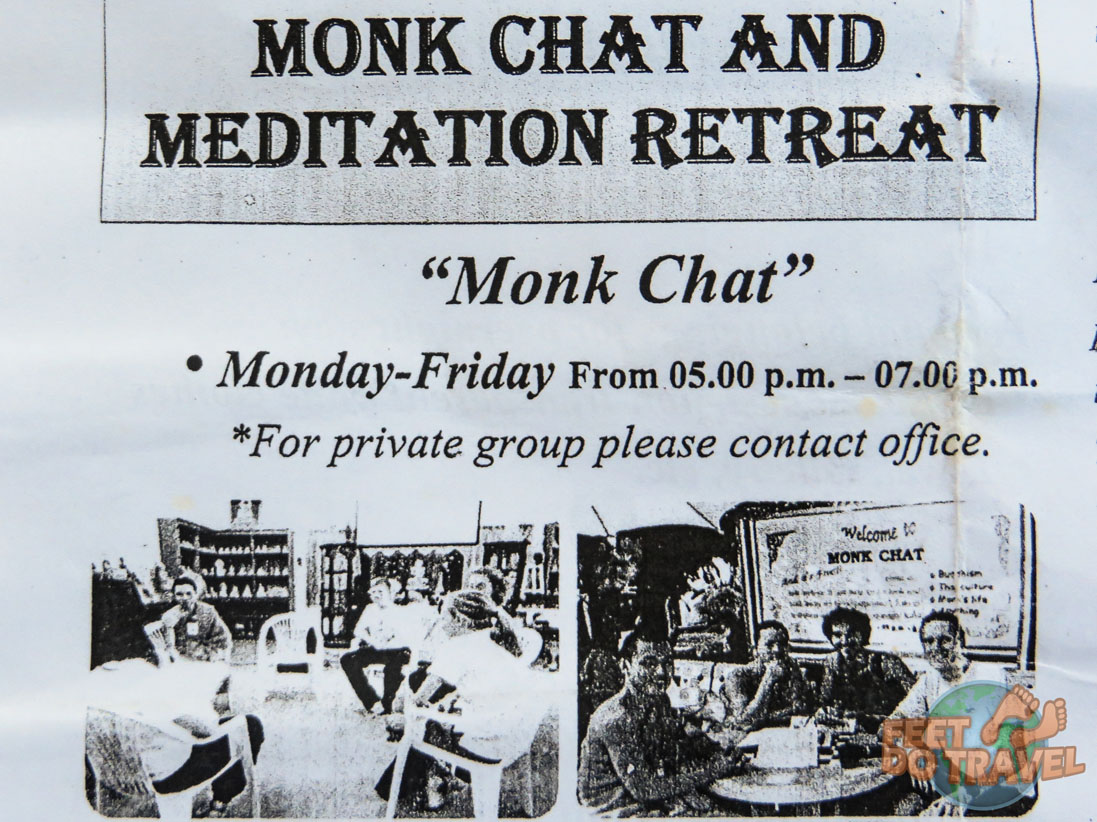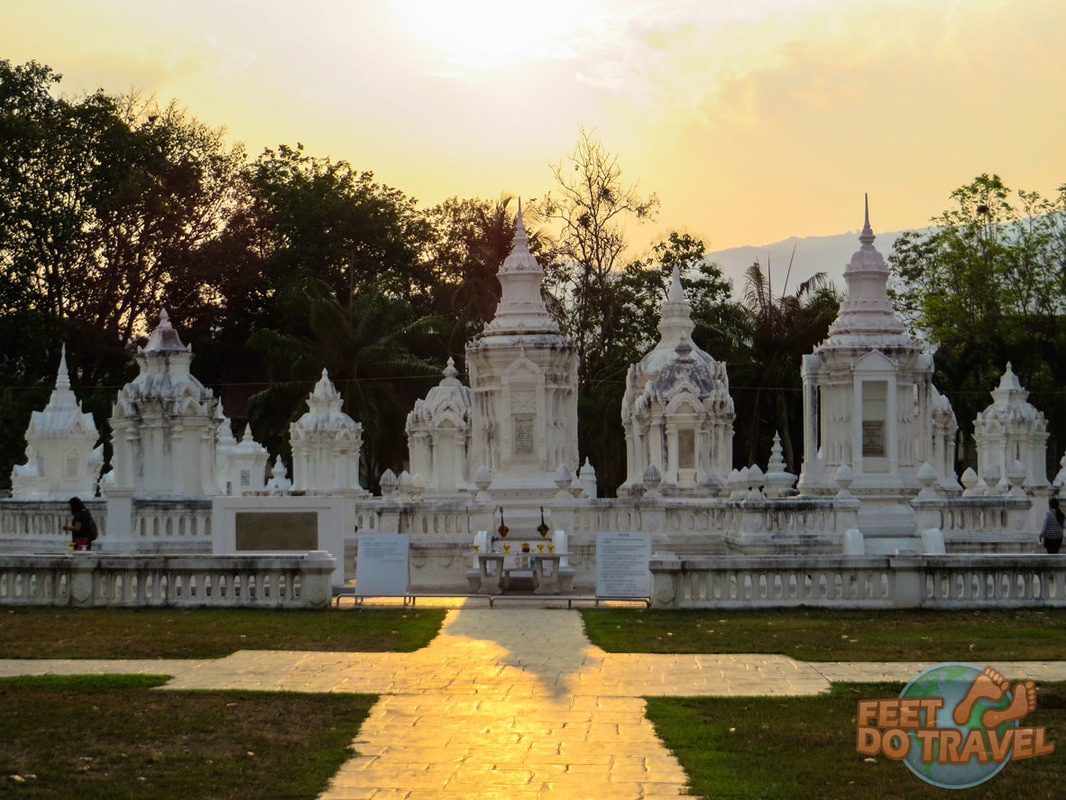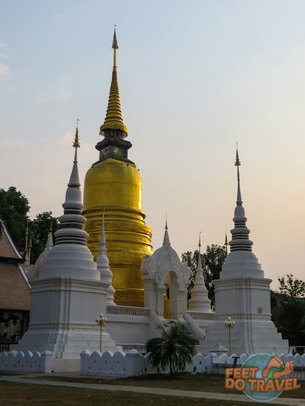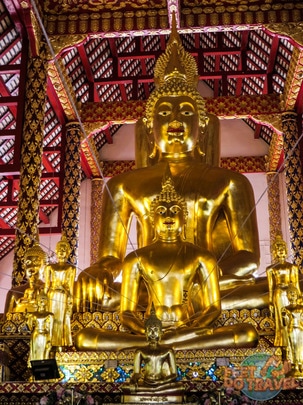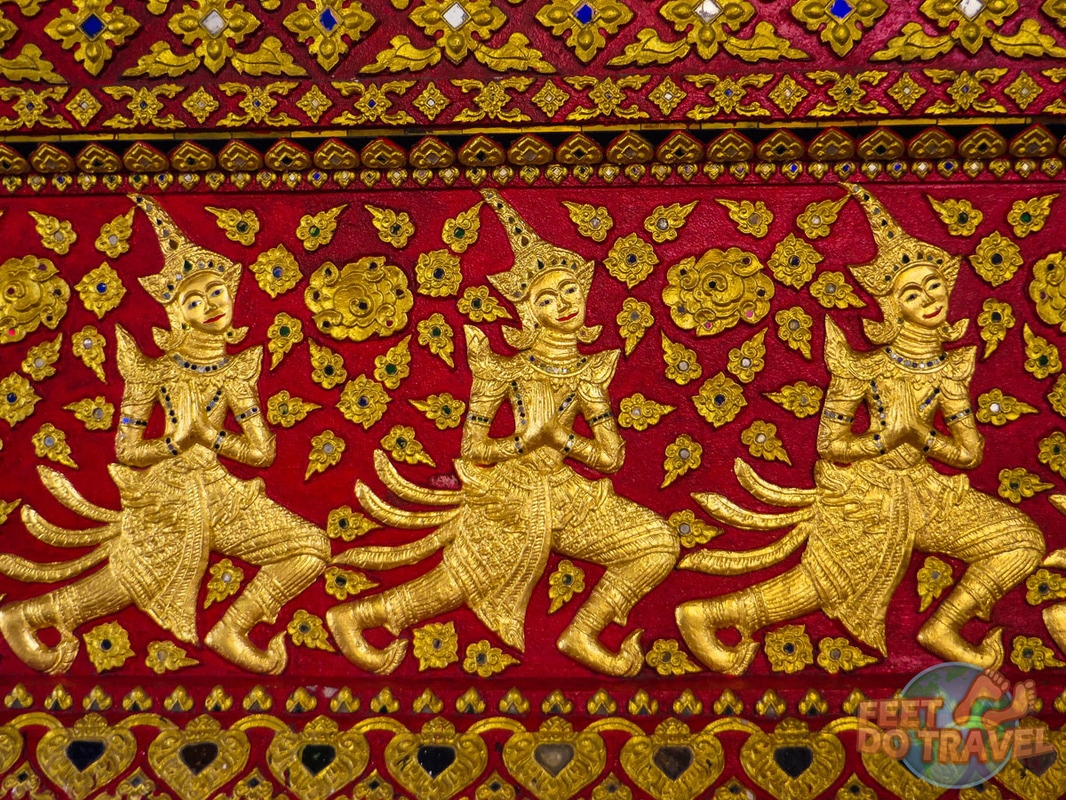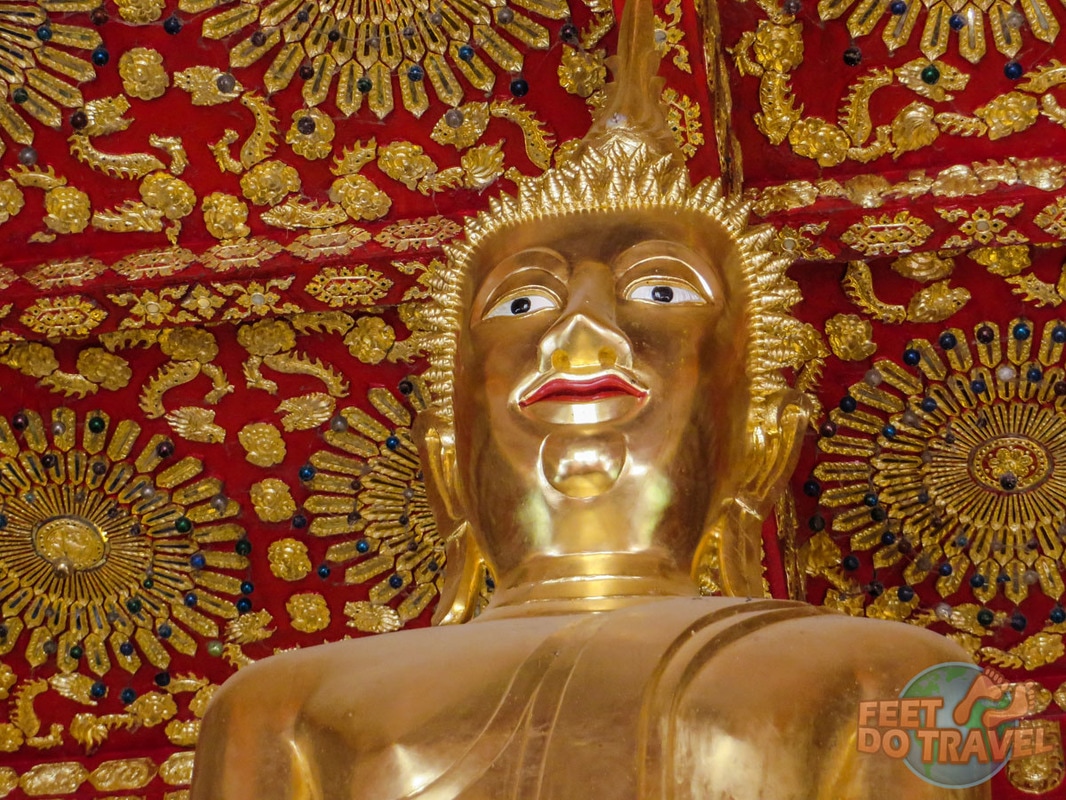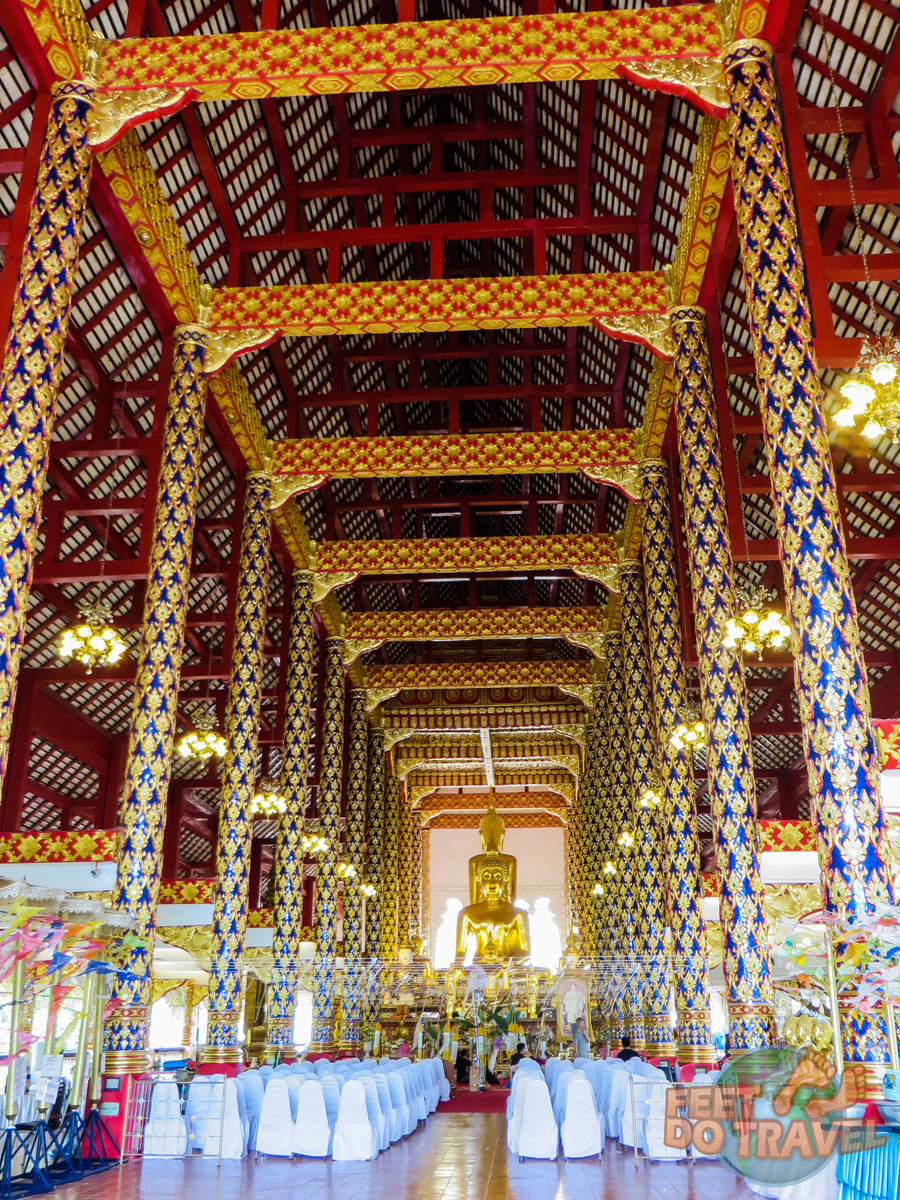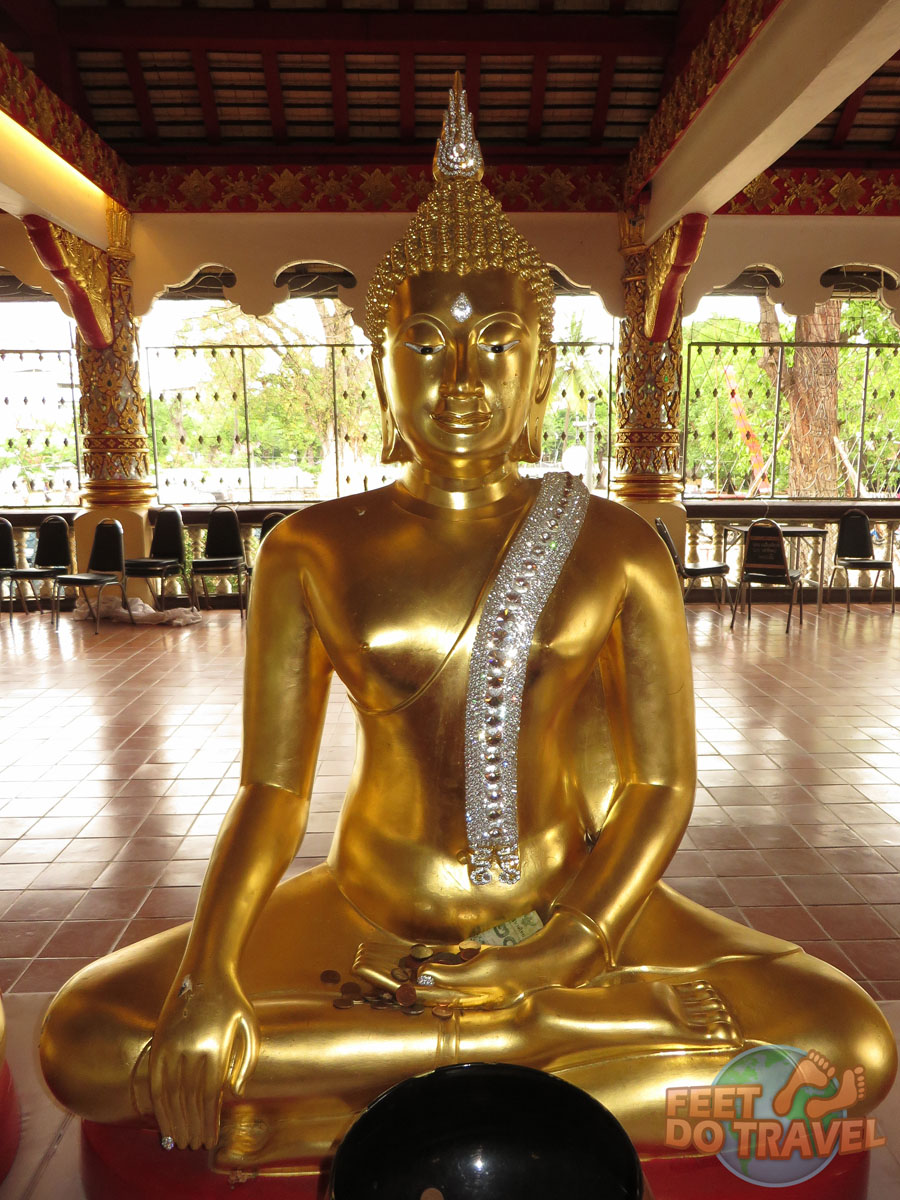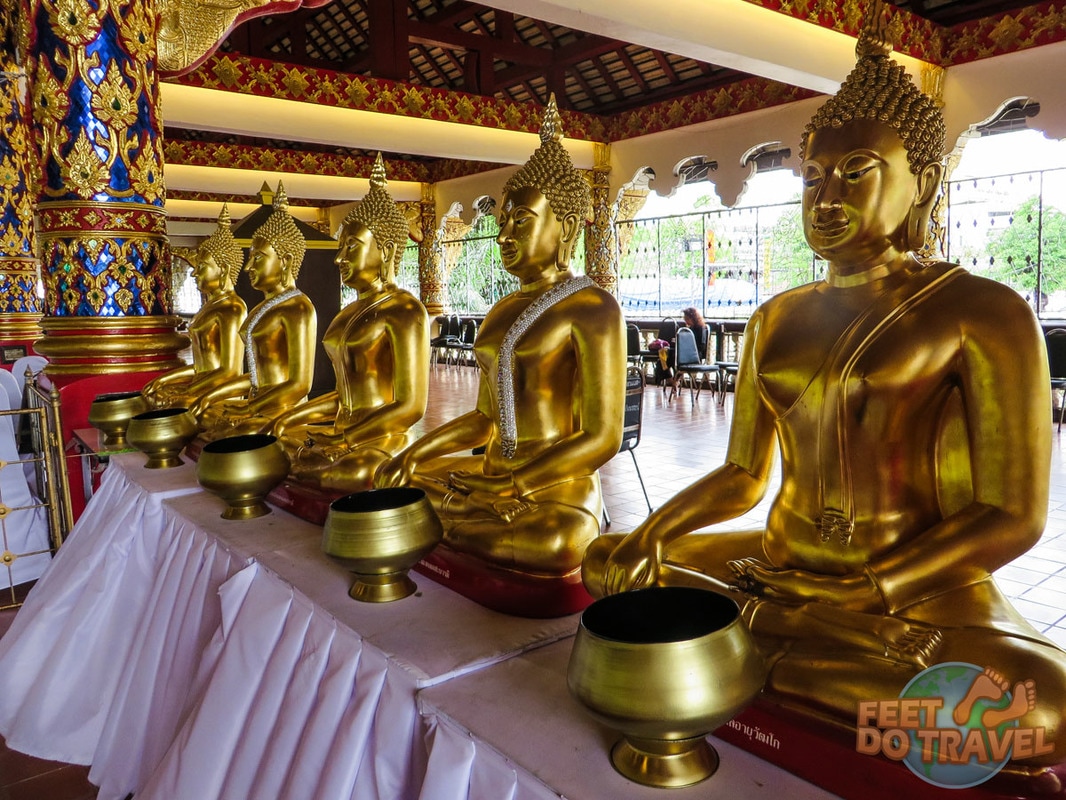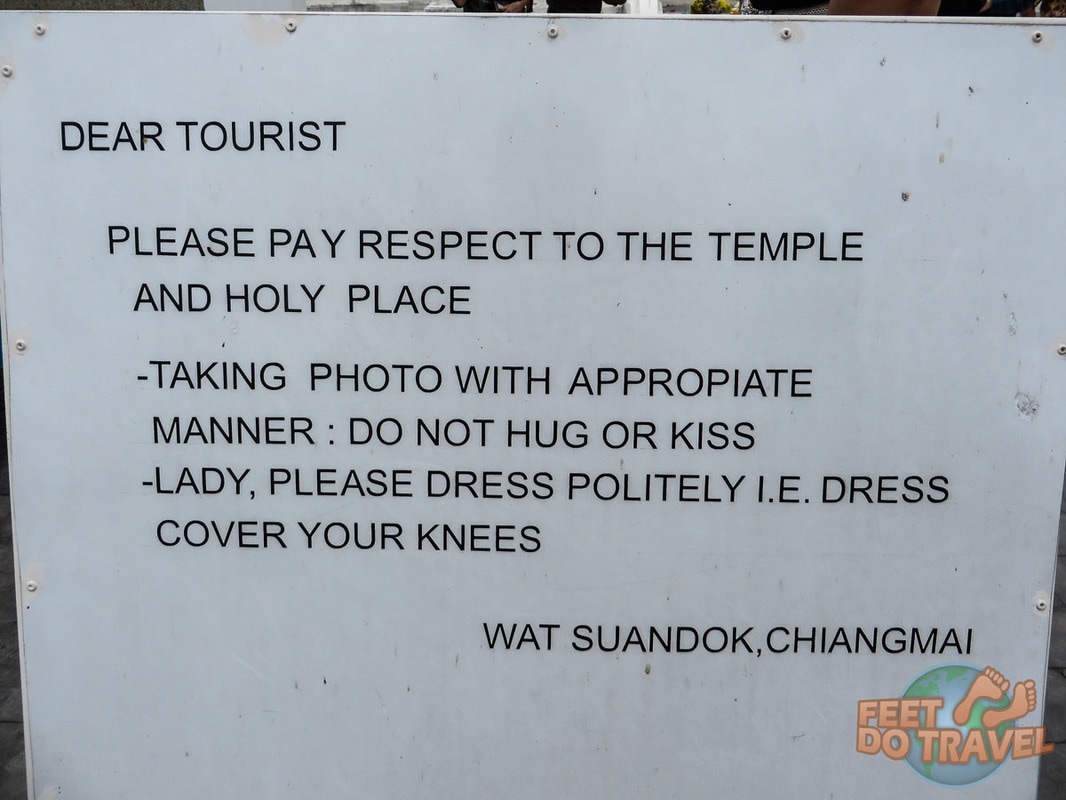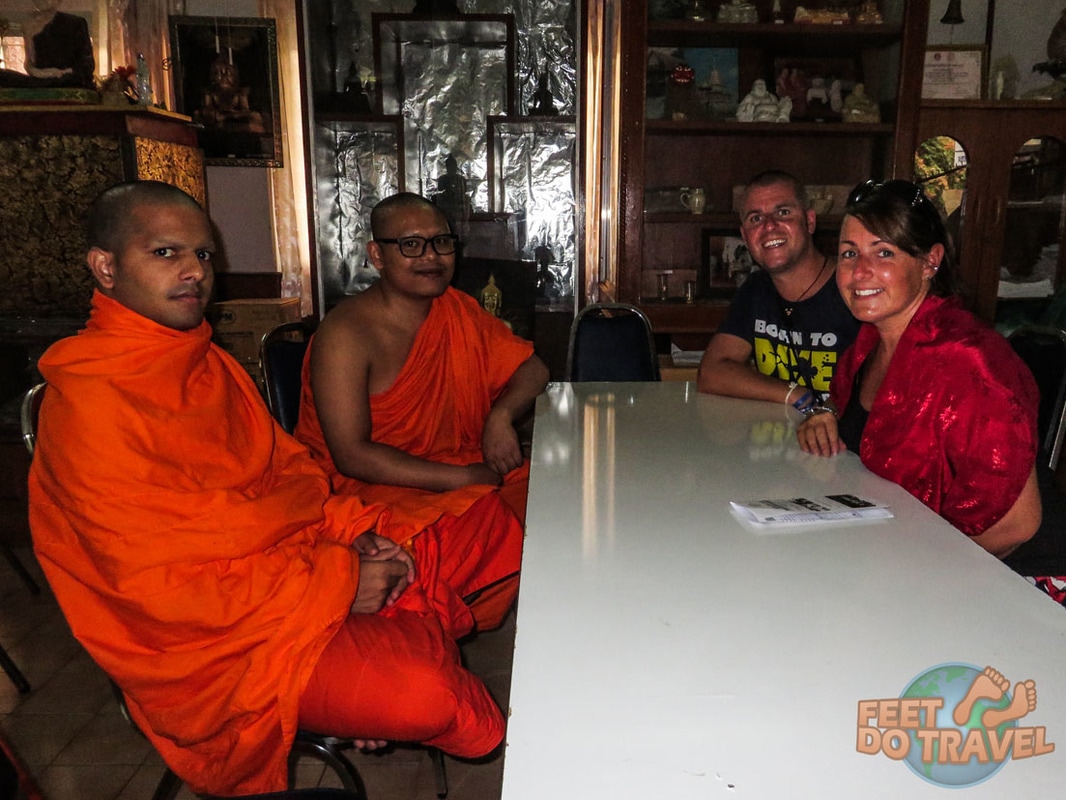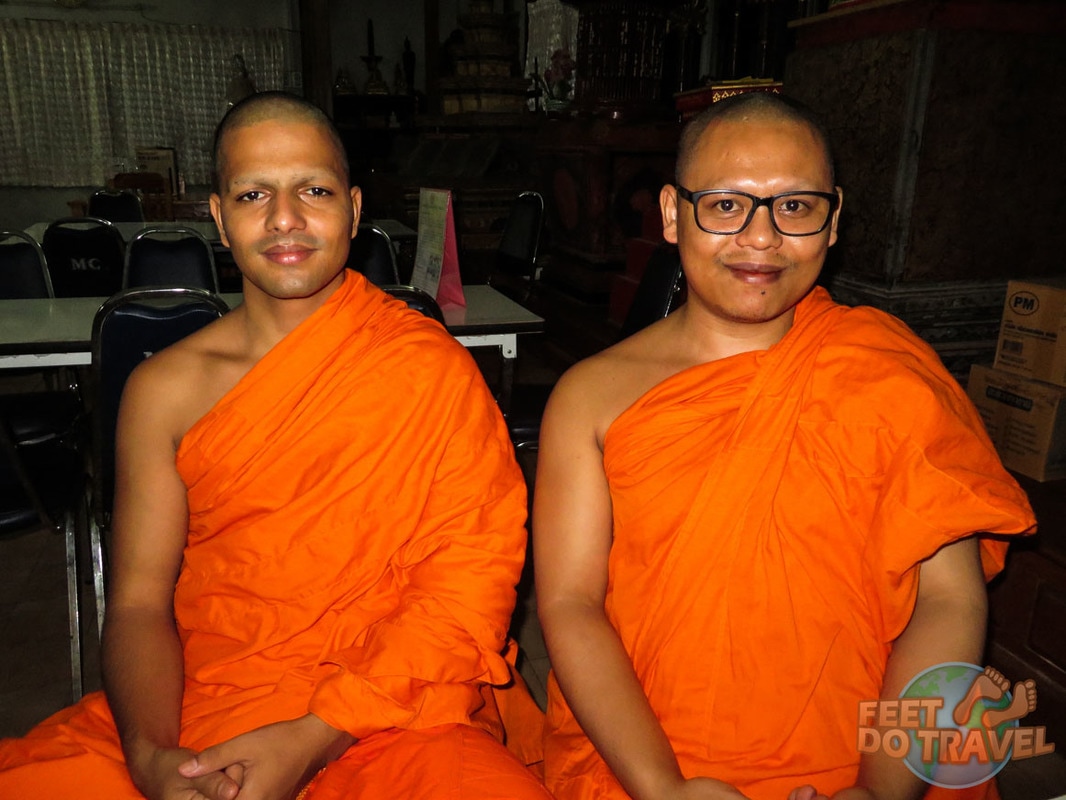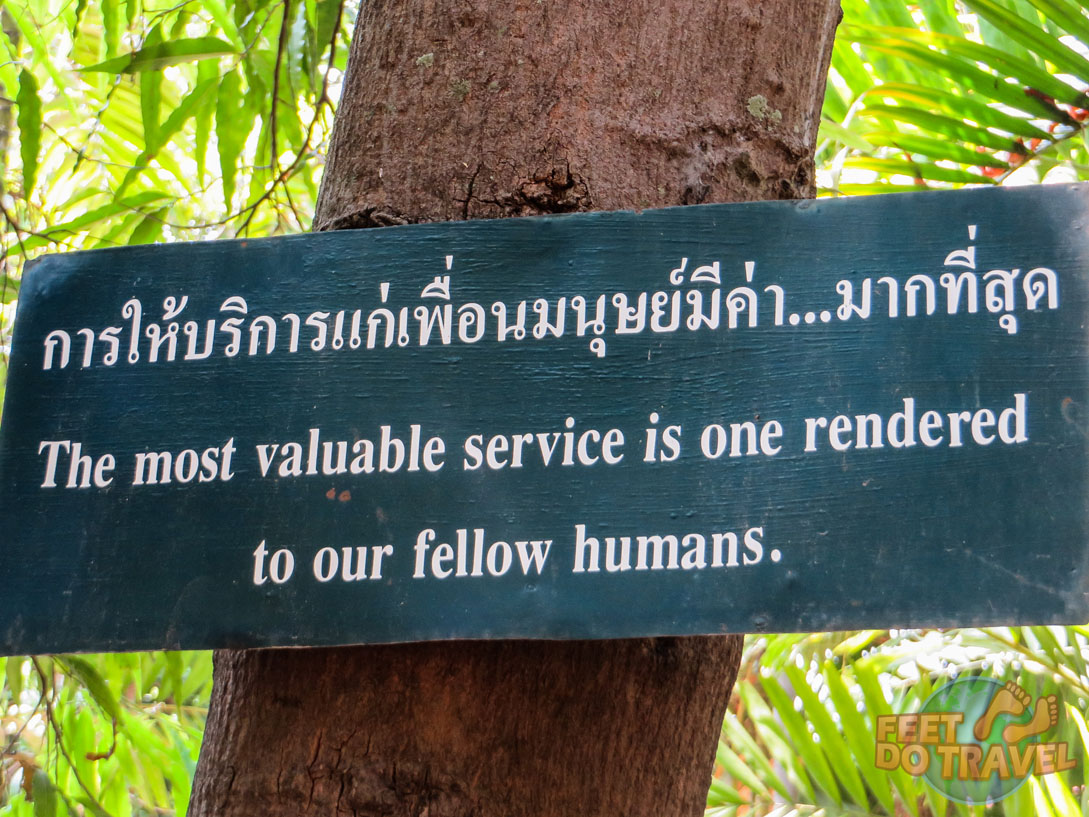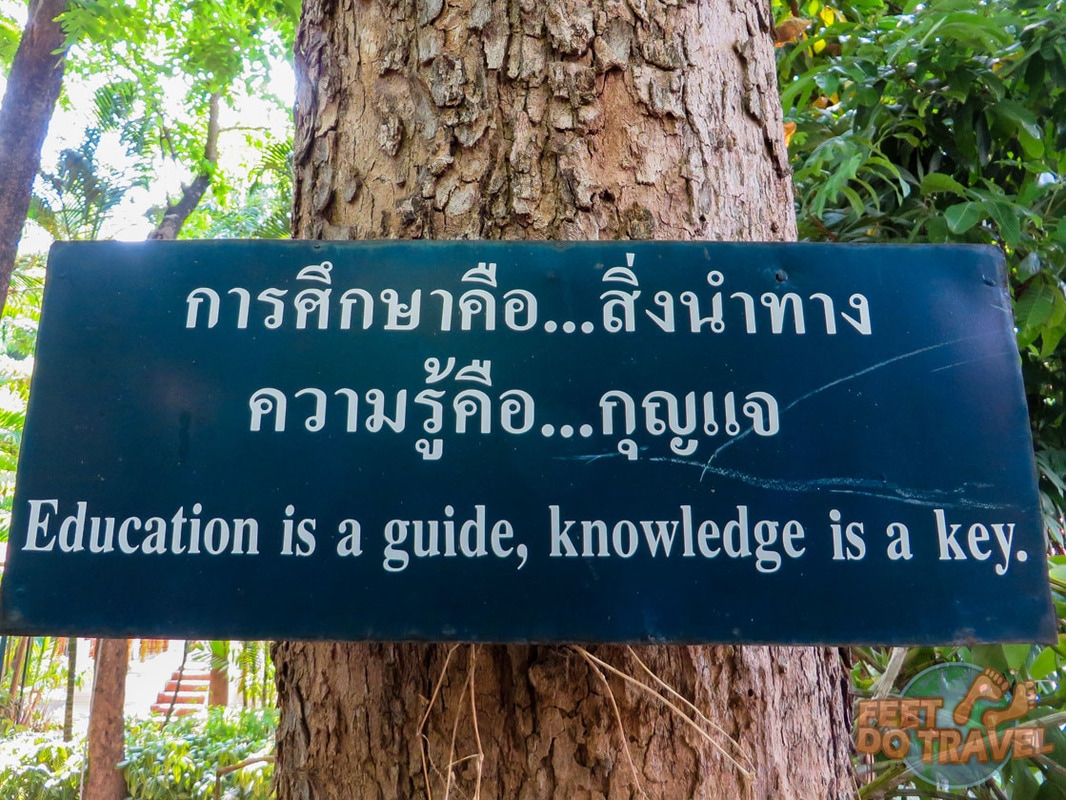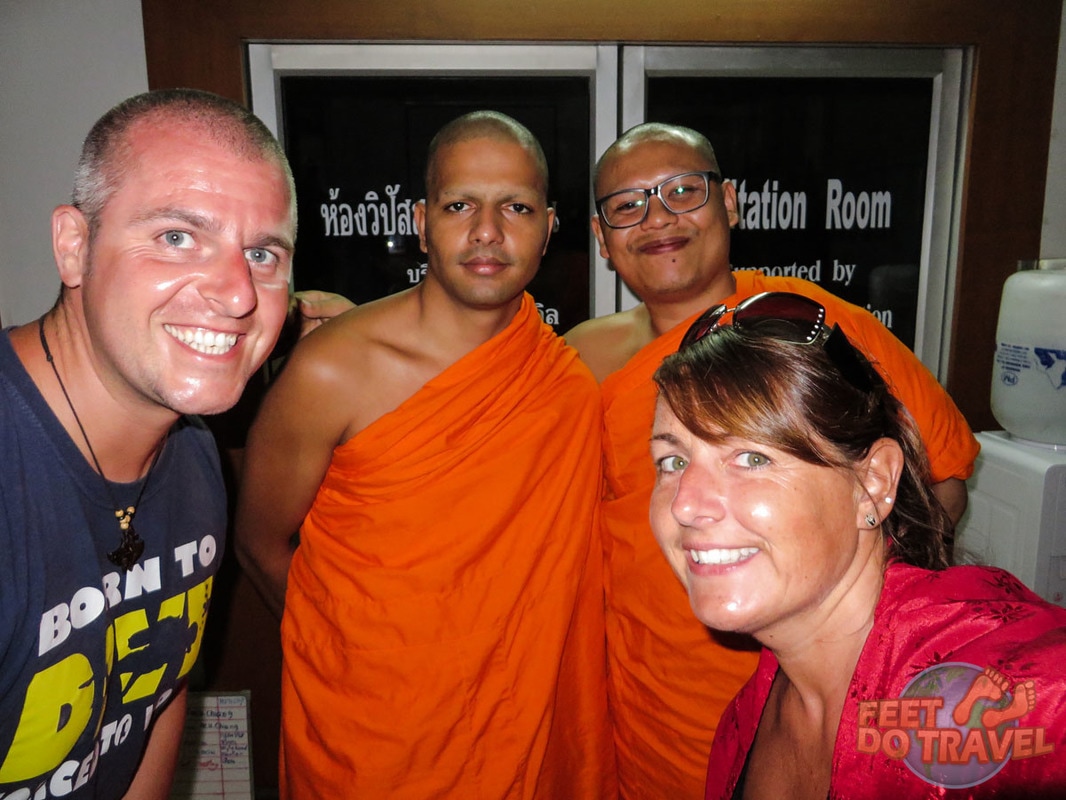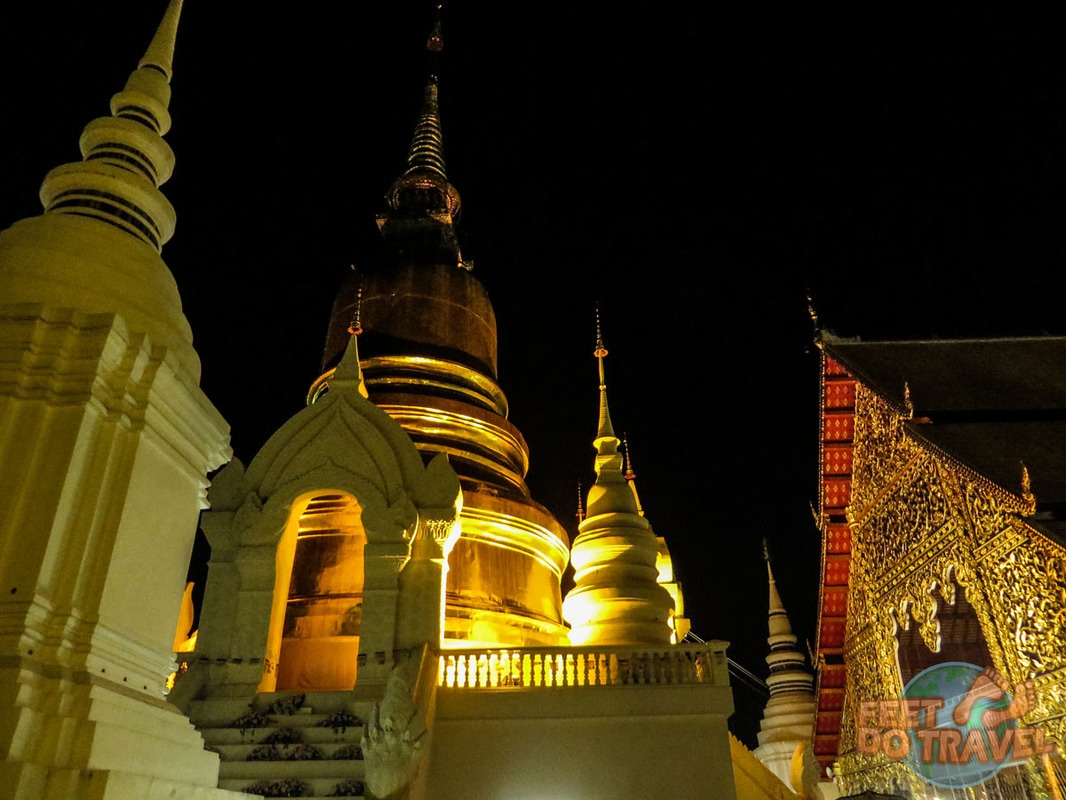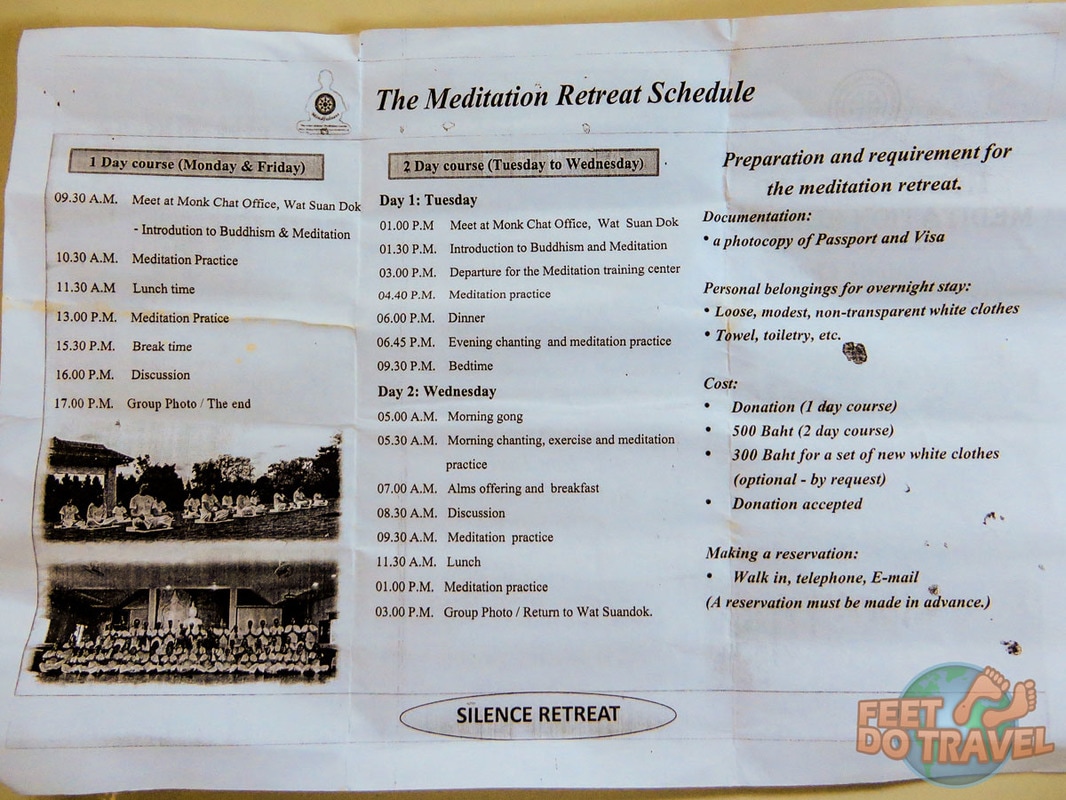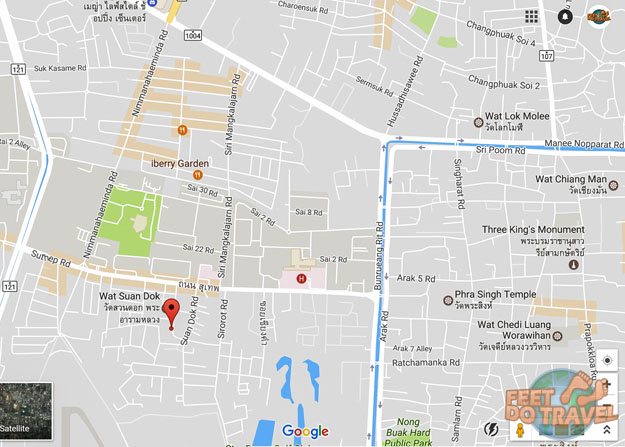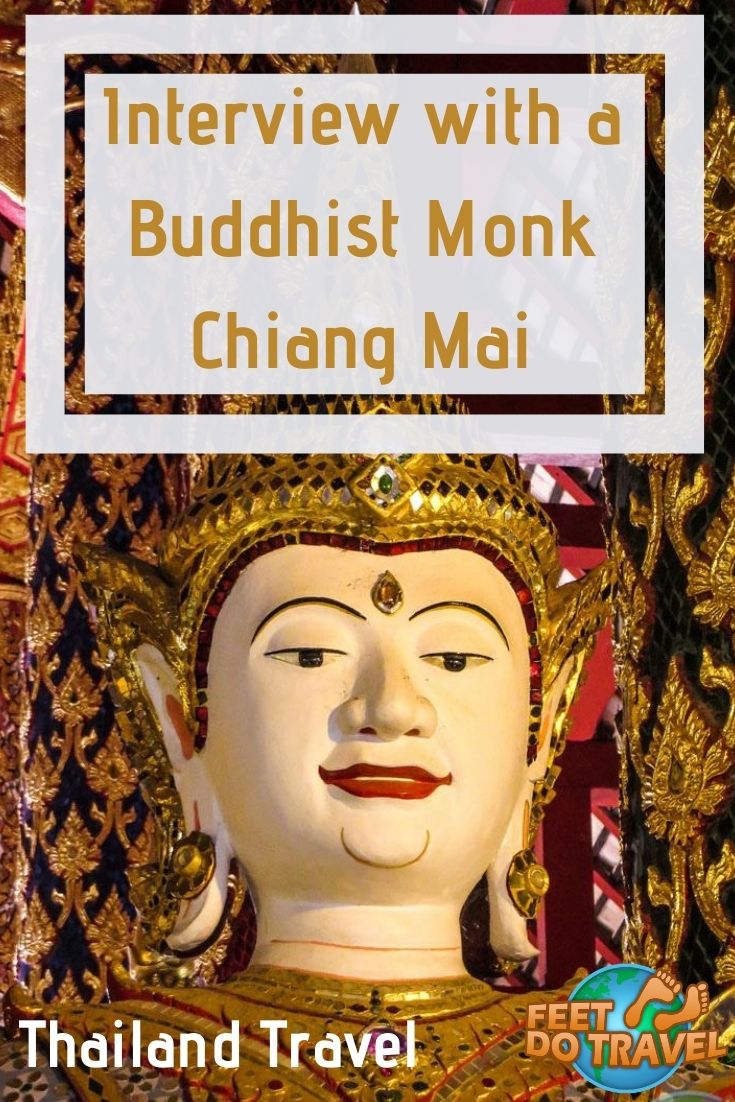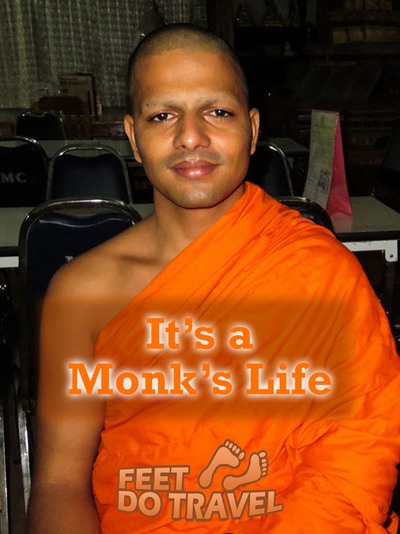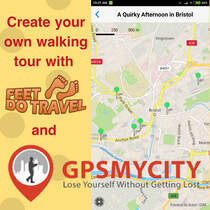I have asked myself these questions, so when we were in Chiang Mai, Thailand we discovered Monk Chat. I knew this would be my chance to ask them questions, and find out more about their lives. Monk Chat is the perfect unique and unusual thing to do in Chiang Mai.
We were told we would have about an hour with the monks, but would we be able to fill the time with our questions or would there be periods of awkward silence? Would they be able to understand our English language and accents? I had questions about my questions …
I guess it’s time to find out!
Feet Do Travel share Monk Chat: an interview with a Buddhist Monk in Chiang Mai, Thailand.
A monk’s purpose in life is to learn, practice and share. That is what makes them happy and fulfils their purpose. Their life is made up of three duties; Temple/Monastery duties; Personal Duties and Social Duties such as monk chats. By taking part in Monk chats, the monks are not only learning English but it helps their education towards becoming a Senior Monk.
This is why the monk chats are so important. It’s not just for you to find out more about monks, it’s so you can both learn from one another. Monks value their time with us; it helps their spoken English and learn more about a life they do not lead. By chatting with the monks, you are sharing valuable information and, as sharing is a value taught in Buddhism, this is an important part of Buddhism.
Our monks introduced themselves, the Senior Monk was Phra KK who was born in Bangladesh, and Phra Ram from Nepal. The word “Phra (pronounced Pra)” means monk.
Phra KK asked us for our names; “I’m Simon” said Sy “Ahhh Simon is a common name isn’t it, like Simon from Britain’s Got Talent”.
Well, we weren’t expecting that! I asked him how he knew about this English show, he told us he had learned about it through monk chats; he had been inspired by the British people to watch it.
Simon Cowell – if you are reading this, you can count this monk as one of your fans!
I am pleased to report that in Thailand, monks are respected so no it does not happen. It does sometimes happen by accident and, hilariously, the next day we saw a few monks actively getting involved in Songkran.
We then continued asking our pre-written questions, although sometimes the conversation veered in a different direction as a result of their responses, so we simply went with it and let the natural conversation flow – it was so very interesting!
Phra KK, the Senior Monk, started to answer questions first then he remembered that Pra Ram was new to monk chat and this was part of his development. He would then invite Ram to speak first.
How long have you been a monk and what did you do before?
KK – 15 years, I was young when I become a monk so didn’t do anything before.
Ram – 8 years and before this I was a student.
How long will you stay a monk?
Ram – Now I am a monk, I don’t think about the future. That could change, but [at the moment] I don’t think about it. I don’t think about whether I will be a monk in 1 minute, or 1 hour or one day from now. All that is important is now.
KK – I don’t think about it, I live in the present and am happy as a monk.
What led you to become a monk?
Ram – I saw a monk when I went to Kathmandu and I wanted to wear the robe so I went home and asked permission from my parents who were Hindu. I went for 7 days and stayed as a novice.
KK – I have a different story to Ram. I grew up in the hills of Bangladesh and lost my mother when I was 8, then I was orphaned at 13. I started chatting to a monk about why I was feeling this pain and how would I be looked after and fed. The Monk made me realise that I wasn’t the only one who had lost someone, people all around me had lost someone. Not long after I decided to become a Monk. Over the years I studied in Myanmar, India, Sri Lanka then I had an opportunity to come to Thailand.
Is there anything you miss?
Ram – Life is good as a monk so I don’t miss anything. I don’t focus on what I have lost or I might miss, I just focus on what I have as a monk.
KK – When I see people playing cricket then I remember when I used to play it when I was younger, but Buddhism teaches you how to deal with this and move on. You feel it, accept it and learn to process that feeling and put it behind you. We are taught to learn from the difficulties then overcome then.
Ram – It was very hard at the beginning, but after 8 years, it’s easier, nothing is difficult. But yes, at the start, learning to change from a normal life to a monk life is difficult but I like being a monk so it’s not hard anymore. We wake up at 5am, we are chanting a couple of times a day, we meditate a couple of times a day and usually we are in bed by 9-10pm.
KK – Yes in the beginning it is difficult because there are 227 rules a monk has to live by, some are major which are easy to follow such as not killing someone, but there are also a lot of minor rules to remember that are more difficult. For example, you are not allowed to eat between midday and midnight. I like food a lot! Another minor rule is that we are not allowed to sing songs.
It was at this point in the conversation we started to discuss what little we knew about Buddhism; what I had learnt from reading the Dalai Lama’s autobiography, and what we had both been taught from the few Buddhist lessons we had attended.
So what do you enjoy most about being a monk?
Ram – Making friends with monks from other countries and meditating. In our temple we live with 200 people in peace and happiness and we learn to lose the word “I” and we say “we”, for instance you may say “it’s my house” but we say “it’s our temple”.
KK – Going back to what you said about the Dalai Lama’s teaching, that happiness is within us. You can have peace within yourself, it’s a state of mind, you just need to train and learn to unlock it. The more you have, the more you want and you have stress and anxiety. Life is about balance. People take care of their bodies and go to the gym but they don’t look after the mind and have stress in their life. Take care of your mind not just your body.
So what I enjoy the most is being happy in the present.
Don’t believe anyone but yourself.
KK - If you break a major rule, you are not considered to be a monk so you obviously have to leave, but for minor ones, you may need to mediate for a few days. Senior Monks are there to show you the right path as we are always learning and there are so many to remember. A Senior Monk is like a parent teaching their child and showing them the way.
Describe your typical day
We wake up at 5am and during the day we meditate, chant, carry out monastery and social duties then we go to bed around 9-10pm.
Can anyone become a monk and how do you start?
KK - Yes, anyone can become a monk at any age from any religion; it’s a way of life and not a religion so Christians, Hindu’s, Catholics, anyone can seek Nirvana and have the right to gain happiness. You start a new life as a monk so you don’t need to know anything about Buddhism in advance because you learn this from the start as part of your teaching.
You just need two things; first is permission from a family member; if you are married then it will be your wife and if you are single then from your parents, this is so you won’t disappoint anyone when you are not around to earn money and provide for your family. The second permission is from a Senior Monk or your “teacher” as they will take care of you and teach you when you are learning.
If you are under the age of 20 years old you are known as a novice and in training to be a monk, when you are over 20 then you can choose to become a monk.
You mentioned permission from a Senior Monk, how do you become a “Senior Monk”?
KK - All monks are equal regardless of age but it’s experience and practice that makes you a senior monk. For example, Mr Simon, if you were 70 years old and wanted to become a monk, Ram here would be your senior even though he is 25 because he has been a monk for 8 years so has more experience.
Experience is knowledge.
Ram – I started learning English when I was young at school but then I studied it at University, I have just graduated actually, I studied Humanities. But we also speak many different languages as there are many different nationalities here so we all communicate in Thai, English, Nepalese, we are always learning lots of languages.
KK – To answer your question, I would say I learnt the most from the Monk chats and from the people that come here. When we sit and talk with you, that is how we learn.
In Nepalese it’s “Sathi” and in Bengali it’s “Bondu”.
I was now able to end our conversation by saying “thank you friend” to both of them.
We walked into the room wanting to ask the monks questions, however we left feeling like we had made friends, and learnt from one another. It was very humbling.
If you are in Chaing Mai, I would urge you to seek out a Monk Chat, it was such a rewarding experience for us, but more importantly, it was useful for these warm and kind people.
If you are interested in attending a Monk Chat, visit Monk Chat website. If you would like to participate in a one or two day meditation retreat, you can email them.
Flying: All major airlines fly to Bangkok, then take a short internal flight, Air Asia are the cheapest and most popular.
Sleeper Train from Bangkok: Sleeper trains are modern, clean and super efficient. We checked the schedules online and booked in advance via the 12GoAsia website. The office is located across the road from Bangkok’s Hua Lamphong train station; buying and picking up the tickets couldn’t have been easier and I would thoroughly recommend them!
If you had an opportunity to chat with a monk, what question would you ask? Let us know in the comment section below.

If you are visiting Chiang Mai, Thailand or anywhere else, you can now book hotels through our website. We always use and are proud to have an affiliate partnership with Booking.com. Visit our Hotel Booking Page and search as normal.
Pin this post for future reference!
Why You Should Visit Chiang Rai
My Chiang Mai
Temple Tastic Chiang Rai
Temple Tour of Chiang Mai
Ping Pong at Patpong - Sex Tourism or Sexy Show?
5 Unique Ways to Enjoy Busy Bangkok Nights
Quirky Khao Yai: 5 Unique Experiences in Thailand
Visiting Thailand: The Etiquette and More
6 Best Floating Markets in Thailand
Elephant Valley Thailand - Where Elephants Come First
Songkran - Soaking up the Atmosphere
7 Reasons to Visit Koh Samui

